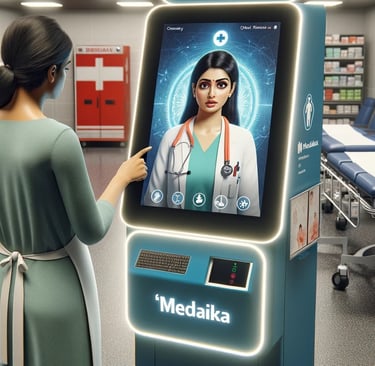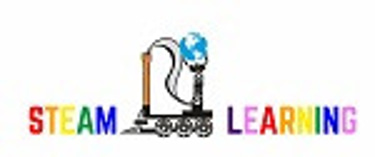

Breaking Language Barriers in Healthcare with medAIka: A Talking Multilingual CDSS
In today's rapidly evolving digital health landscape, accessibility and inclusivity are paramount. However, the language barrier often poses a significant challenge, hindering the widespread adoption of critical healthcare technologies such as Clinical Decision Support Systems (CDSS). Recognizing this challenge, Urav Advanced Learning Systems Private Limited proposes medAIka a talking multilingual versions of CDSS, aimed at revolutionizing healthcare accessibility and usability across diverse linguistic regions.
medAIka – a cutting-edge conversational multilingual medical advisor powered by advanced Artificial Intelligence (AI) and equipped with the transformative translation capabilities of the Bhashini API, developed by the Government of India. With its unique blend of AI-driven decision support, vernacular language translation services, and adaptability as a CDSS, medAIka stands poised to break down language barriers and empower healthcare professionals and patients alike.
Enhancing Accessibility with Multilingual CDSS
The core objective of the NHA's initiative is to enhance the accessibility and usability of CDSS within the digital health ecosystem. By developing versions of CDSS in multiple Indian languages, the aim is to cater to the linguistic diversity prevalent across the country. medAIka serves as a pivotal tool in achieving this objective, offering a seamless multilingual interface that supports 22 Indian scheduled languages.
Bridging the Linguistic Divide
medAIka's integration with the Bhashini API enables real-time translation of medical data, recommendations, and user interactions into the user's preferred language. Whether it's Hindi, Bengali, Tamil, or any other Indian language, healthcare professionals can now access CDSS in their native language, breaking down barriers to understanding and fostering clearer communication.
Tech Stack of medAIka:
Programming Languages:
Python: Used for developing the core AI algorithms, NLP (Natural Language Processing) components, and backend logic.
Java/Kotlin: Utilized for Android application development, ensuring compatibility with a wide range of smartphones.
AI and Machine Learning Frameworks:
TensorFlow: Employed for training and deploying machine learning models, including neural networks for NLP tasks such as text classification, entity recognition, and language modeling.
PyTorch: Utilized for advanced AI model development, enabling experimentation with different architectures and algorithms for enhanced accuracy and performance.
Hugging Face Transformers: Integrated for leveraging pre-trained transformer-based models, such as BERT and GPT, for tasks like text generation, translation, and sentiment analysis.
Natural Language Processing (NLP) Libraries:
NLTK (Natural Language Toolkit): Utilized for basic NLP tasks such as tokenization, stemming, and part-of-speech tagging.
spaCy: Employed for more advanced NLP tasks including dependency parsing, named entity recognition, and sentence segmentation.
Transformers Library (from Hugging Face): Integrated for utilizing state-of-the-art transformer-based models for various NLP tasks, such as translation and summarization.
Translation Services:
Bhashini API: Utilized for translation services, enabling real-time translation of medical data, recommendations, and user interactions into multiple Indian languages.
Google Translate API: Integrated as a backup translation service for languages not covered by Bhashini API, ensuring comprehensive language support.
Mobile Application Development:
Android Studio: Employed for Android application development, providing a powerful IDE (Integrated Development Environment) for designing, coding, and testing the medAIka smartphone application.
Kotlin: Used as the primary programming language for Android app development, offering modern features and seamless integration with existing Java codebases.
Cloud Services:
Google Cloud Platform (GCP): Utilized for hosting backend services, data storage, and deployment of AI models. Services such as Google Cloud Storage, Cloud Functions, and Compute Engine are leveraged for various tasks.
Microsoft Azure: Employed for hosting AI models and accessing additional services such as Azure Blob Storage and Cognitive Services for advanced functionalities.
Database Management:
MongoDB: Utilized as a NoSQL database for storing user preferences, historical interactions, and other relevant data in a scalable and efficient manner.
SQLite: Employed for local storage within the Android application, providing lightweight and embedded database functionality for offline access to certain features and data.
Security and Compliance:
SSL/TLS Encryption: Implemented for securing communication between the mobile application and backend servers, ensuring data privacy and integrity.
HIPAA Compliance Measures: Adhered to for handling sensitive medical information, including encryption, access controls, and audit logging to comply with healthcare industry regulations and standards.
Tailored for Cultural Sensitivity and Accuracy
One of the key challenges in developing multilingual CDSS is ensuring accuracy and cultural sensitivity in medical terminology and recommendations. medAIka addresses this challenge by adapting its AI models to incorporate language-specific medical terminology and concepts, ensuring that clinical recommendations are contextually relevant and culturally appropriate.
Empowering Informed Decision-Making
By providing decision support in regional languages, medAIka enables healthcare professionals to make more informed decisions, leading to improved patient care and outcomes. Whether it's diagnosing symptoms, prescribing treatments, or interpreting medical records, medAIka's multilingual CDSS empowers healthcare professionals to deliver personalized care that transcends language barriers.
Aligning with Regulatory Guidelines
medAIka's development adheres to stringent regulatory guidelines and standards for healthcare technologies in India, ensuring compliance with data privacy and security regulations. The integration of Bhashini API further strengthens medAIka's compliance framework, facilitating secure and encrypted translation services that uphold patient confidentiality.
The Future of Healthcare Accessibility
By leveraging the power of AI, vernacular language translation, and advanced CDSS capabilities, medAIka is poised to transform healthcare delivery, bridging linguistic divides and empowering both healthcare professionals and patients across India.
In conclusion, medAIka represents a paradigm shift in healthcare accessibility and inclusivity, offering a glimpse into a future where language is no longer a barrier to quality care. With its revolutionary approach to multilingual CDSS and its commitment to breaking down language barriers, medAIka is poised to revolutionize the way healthcare is delivered and experienced in India and beyond.
Address
KERA 44, SWASTHI, 45/2234, KUTHAPPADY, THAMMANAM, KOCHI, KERALA 682032, INDIA
Contacts
+91 944 771 1302
Subscribe to our newsletter
info@uralstech.in
CIN: U72900KL2020PTC061085 GST: 32AACCU5508Q1Z1
